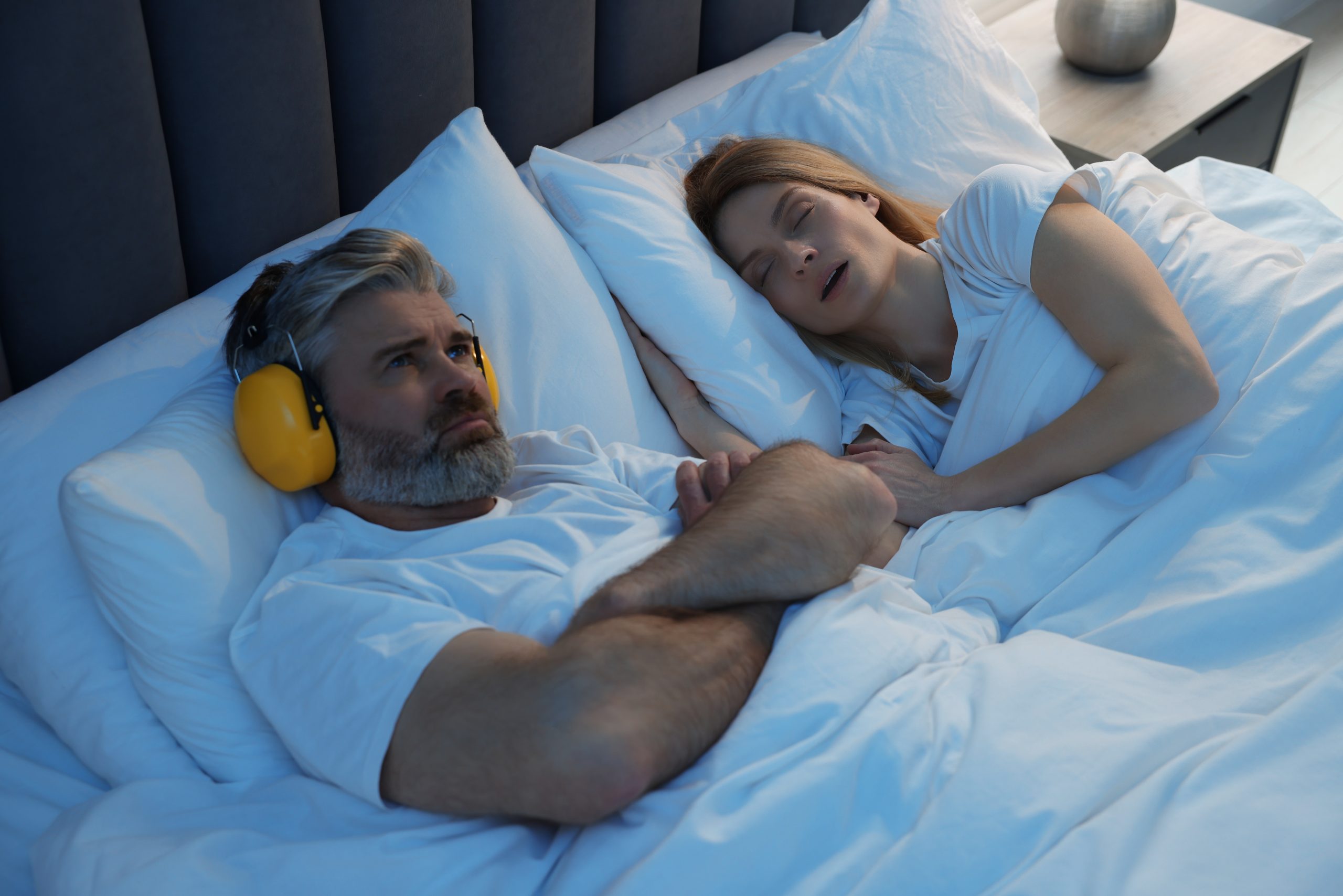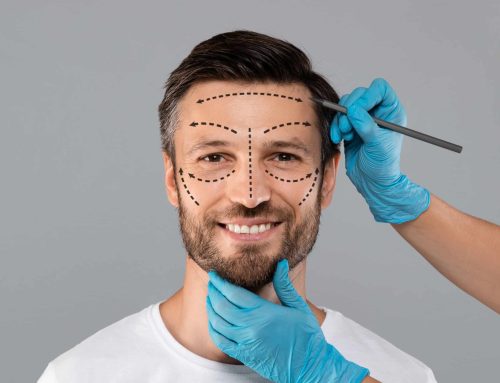If you’ve ever wondered what snoring really is, what causes it, and why some people snore and others don’t, keep reading, because we are going to explore this topic, provide you with some real solutions, and reveal some surprising statistics.
Snoring and Relationships
Snoring is more than an unpleasant sound that’s difficult to sleep through, it creates big problems not only for your health but in other areas of your life, including your relationships. Dr. Jill Wade of Stonebriar Smile Design admits that she snores saying that, “I love sleeping in bed with my man, and when I am snoring like crazy…either he or I are going out of the room.” She’s not the only one taking these measures in the effort to sleep, it’s happening all over the United States, and couples are struggling to stay “connected in the bedroom” because they’re having to sleep separately due to snoring. However, this arrangement is not a solution to the problem, nor is it good for the long term, and it’s just a symptom of a much bigger issue, which could be tied to someone’s breathing or sleeping.

Dr. Wade suggests investing in treatment rather than paying the high cost of divorce, and not just in terms of monetary loss or investment but in terms of time, health, and ultimately, relationships.
What Causes Snoring
Snoring can be caused by an obstruction in the nasal cavity or a deviated septum, for example, but to really understand what causes snoring, we have to look at the anatomy of the throat. As Dr. Wade explains, “the back of the throat…where our food goes down, and where we swallow, there are a lot of other anatomical spots around it that are soft and mobile.” If the tissue in those areas are “too mobile” or “too flappy,” that is what causes the noise you hear when someone snores—it’s those soft, mobile tissues flapping around as someone breathes. This also explains why some people snore and others don’t, because in non-snorers, those areas, or soft tissues, are tighter and more secure, much less mobile than in the throat of someone who snores.
You may have also noticed that snorers often sleep with their mouths open. It’s no revelation that you’re supposed to breathe through your nose, which is much healthier. According to health and beauty expert Laura Lewis-Edwards, breathing through the nose is better for oxygenating the blood, promoting better healing, more restful sleep, and feeling refreshed and less stressed upon waking. Conversely, sleeping with your mouth open could cause the mouth to feel dry, diminish the quality of your sleep, and cause other issues that can disrupt your slumber.
 Our dentists at Stonebriar Smile Design approach treatment from a comprehensive viewpoint with our patients, and we use cone beam technology, which Dr. Wade describes as “a type of x-ray that adds a third dimension to things,” and goes 180 degrees around the head. This x-ray format allows us to view and measure every aspect of the face—including the bones and soft tissues—and discern whether your throat is being constricted, identify whether you have a deviated septum, polyp, turbinates, or some other space in the nose that you can’t breathe through.
Our dentists at Stonebriar Smile Design approach treatment from a comprehensive viewpoint with our patients, and we use cone beam technology, which Dr. Wade describes as “a type of x-ray that adds a third dimension to things,” and goes 180 degrees around the head. This x-ray format allows us to view and measure every aspect of the face—including the bones and soft tissues—and discern whether your throat is being constricted, identify whether you have a deviated septum, polyp, turbinates, or some other space in the nose that you can’t breathe through.
“Through our diagnostics,” says Dr. Wade. “We’re able to tell [patients] so much more information about what’s really going on with them than they’ve even been told [when] seeing an ENT (ear, nose, and throat specialist) or seeing their general physicians.”
Issues Caused by Snoring
Snoring can be both the cause and an indication of health problems, including fatigue and even weight gain. If you’re not sleeping well, you’ll typically wake up feeling exhausted. If this happens on a consistent basis, it increases your cortisol levels—which contributes to belly fat—because your body thinks you’re in “survival mode” due to the lack of restful sleep. Consequently, your body holds on to this fat, and despite your best efforts, dieting, and working out, “you’re not going to get the results that you’re looking for.”
To get your desired results for the long term, you have to treat the root cause of the problem, which, by the way, isn’t the snoring. The cause could be a hormone imbalance, stress, or include some other factors.
Solutions
Because snoring and its causes are multifaceted, there isn’t just one solution or remedy. However, there are some short term, inexpensive, and widely-available options to reduce snoring, some of which people love and find effective.
- Nasal Strips: Some people love nasal strips, also called nose strips. According to Dr. Wade, they help support and open the nose for better breathing, and they’re easy to find at your local supermarket or pharmacy.
- Nasal Dilator: This type of nose support works from the interior of the nose. “They look like loops with little circles,” says Dr. Wade. Although the design is simple, it opens the nasal passages, allowing for a more natural flow of air through the nose rather than all through the mouth.
- Mouth tape: Yes, it’s just as it sounds—tape for the mouth. Frequently used by health and beauty expert Laura Lewis-Edwards to help keep her from sleeping with her mouth open, simply put, it does just that.
 At Stonebriar Smile design, one of our most effective (and permanent), noninvasive solutions is a laser called the Solea Sleep, which “allows us to go inside the mouth…where the tissue is soft and moving,” explains Dr. Wade. The laser “traumatizes” the deeper layers of tissue, meaning it stimulates the collagen fibers by heating them up, which then prompts them to heal and tighten, and over the next 20 to 30 days, those fibers actually shrink some of the soft tissue—the “flappy,” mobile tissue causing the snoring. This effectively opens the back of the throat, allowing you to breathe better.
At Stonebriar Smile design, one of our most effective (and permanent), noninvasive solutions is a laser called the Solea Sleep, which “allows us to go inside the mouth…where the tissue is soft and moving,” explains Dr. Wade. The laser “traumatizes” the deeper layers of tissue, meaning it stimulates the collagen fibers by heating them up, which then prompts them to heal and tighten, and over the next 20 to 30 days, those fibers actually shrink some of the soft tissue—the “flappy,” mobile tissue causing the snoring. This effectively opens the back of the throat, allowing you to breathe better.
This treatment is very affordable and virtually painless. On average, it takes 15–20 minutes, costs between $600–800, with most people requiring anywhere from two to four treatments—depending on the individual and the severity of their issue—and is conducted about 20 to 30 days apart. Dr. Wade attests that you can go right back to work, eat normally, work out, and get on with your day, requiring no downtime. She also compares the post-procedure effects to that of having drank a cup of coffee too fast while it was a little too hot, causing your throat to feel irritated.
The more invasive treatments of the past, where dental surgeons would cut away some of the soft tissue that causes snoring, were very painful, causing soreness “almost like a tonsillectomy type of situation,” and wouldn’t always prove successful—only changing the sound of the snore rather than silencing it.
It’s probably safe to say that snoring is just not sexy, but we hope some of these options will help restore bedrooms to a healthier, happier, and sexier place for everyone.
Click here to watch this episode of the Beyond Face Value Show on YouTube with co-host Laura Lewis-Edwards.
Visit us on YouTube to hear more about Stonebriar Smile Design – dentists, Frisco TX and wellness dentistry, and be sure to comment, like, and subscribe.




